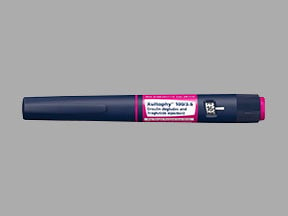
Xultophy Coupons & Savings Card – Discount Prices from $245.65
My prescription
Edit
5 solution pen-injectors 3ML of 100-3.6UNIT-MG/ML, Xultophy (1 Pen)
Select pharmacy

CVS
$245.65
COUPON PRICE
Walgreens
$248.78
COUPON PRICE
Walmart
$248.83
COUPON PRICE
Albertsons
$272.50
COUPON PRICEXultophy savings card
Show this card to your pharmacist
CVS
$245.65
BIN
ID
PCN
GRP
019876
LH8F59BC1C
CHIPPO
LHX
Powered by
More prescriptions for diabetes type 2
More prescriptions for diabetes type 2
Price history for Xultophy
1 Pen, 3ML of 100-3.6UNIT-MG/ML
Average retail price for Xultophy
Average SaveHealth price for Xultophy
Our price history data is based on aggregated prescription data collected from participating pharmacies in America. Our prescription data updates daily to reflect the latest price changes. If you notice a missing data point, it means there wasn't sufficient data available to generate a monetary value for that date.
*Retail prices are based on pharmacy claims data, and may not be accurate when we don't have enough claims.
Xultophy dosage forms
Dosage Quantity Price from Per unit 3ML of 100-3.6UNIT-MG/ML 1 Pen $245.65 $245.65 3ML of 100-3.6UNIT-MG/ML 2 Pens $491.31 $245.66 3ML of 100-3.6UNIT-MG/ML 3 Pens $736.96 $245.65
| Dosage | Quantity | Price from | Per unit |
|---|---|---|---|
| 3ML of 100-3.6UNIT-MG/ML | 1 Pen | $245.65 | $245.65 |
| 3ML of 100-3.6UNIT-MG/ML | 2 Pens | $491.31 | $245.66 |
| 3ML of 100-3.6UNIT-MG/ML | 3 Pens | $736.96 | $245.65 |
What type of insulin is in Xultophy?
Xultophy contains insulin degludec, which is a long-acting insulin.
Does Xultophy cause weight loss?
Xultophy is not primarily associated with weight loss. It is a combination medication used to improve blood sugar control in adults with type 2 diabetes. While some patients may experience weight changes, weight loss is not a common effect of Xultophy. Patients should discuss any concerns about weight changes with their healthcare provider.
Is Xultophy the same as Tresiba?
Xultophy and Tresiba are not the same. Xultophy is a combination medication that contains insulin degludec (Tresiba) and liraglutide, a GLP-1 receptor agonist. Tresiba, on the other hand, contains only insulin degludec. They are used for managing diabetes but have different compositions and mechanisms of action.
What insulin is comparable to Xultophy?
Xultophy is a combination of insulin degludec and liraglutide. Insulin degludec, a long-acting insulin, is comparable to other long-acting insulins such as insulin glargine (found in Lantus or Toujeo) and insulin detemir (found in Levemir). However, Xultophy also contains liraglutide, a GLP-1 receptor agonist, which makes it unique. There is no direct single insulin product that is entirely comparable to Xultophy due to this combination.
Can you lose weight on Xultophy?
Xultophy is a medication that combines insulin degludec and liraglutide. While its primary use is to improve blood sugar control in adults with type 2 diabetes, some patients may experience weight loss as a side effect due to the liraglutide component, which can reduce appetite. However, weight changes can vary among individuals, and it is important to follow a healthcare provider's guidance for managing weight and diabetes.
